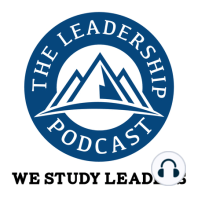53 min listen

TLP393: Transitioning from Expert to Leader with Ed Batista
TLP393: Transitioning from Expert to Leader with Ed Batista
ratings:
Length:
46 minutes
Released:
Jan 24, 2024
Format:
Podcast episode
Description
Ed Batista, an executive coach and Stanford lecturer, discusses self-coaching, highlighting its relational aspect and the value of writing for self-reflection. He underscores the necessity of personalizing documentation techniques and references Stanford's successful "touchy-feely" course, explaining its organizational impact. Ed addresses the crucial role of coaching in today's divisive climate, focusing on the challenges leaders face in navigating polarizing social and political issues and providing guidance on effective leadership and team management through strong communication. Key Takeaways: [2:44] Ed describes his significant life transition from living in San Francisco for 30 years to unexpectedly moving to a working sheep and cattle ranch in Marin County due to the pandemic. Various factors, including the change to virtual work, retirement from teaching at Stanford, and a reassessment of priorities, led to this shift. He reflects on the challenges and educational experiences of rural living and shares the difficult decision to step away from teaching a course they founded at Stanford, "The Art of Self Coaching," but later on, realize that it was the right choice. [7:10] He explains that self-coaching is a self-directed process, but not a solitary one. Ed believes that while reflection is crucial, it is equally important to engage with others in the process. His teaching approach, which involves giving students readings and prompting them to integrate the material with personal experiences through writing. He then encourages students to recognize the need for both solitary reflection and engagement with others, as the latter is essential for discussing challenges and seeking help. [9:33] Ed shares about the value of reflective writing, such as journaling, for personal development. He mentions that traditional diary-style journaling can be tedious and unsustainable, leading many to abandon the practice. Subsequently, he advocates for a more personalized and sustainable approach, emphasizing that the act of writing itself, regardless of whether one revisits the content, has numerous benefits. Ed also provides insight into their experience with a course called "Interpersonal Dynamics" at Stanford, also known as "touchy-feely”. He provides a historical context, detailing the course's evolution and its enduring impact on individuals and organizations. [17:09] With the increasing challenges in this world, including social, political, and economic issues, Ed explains that there is a need for coaching, particularly among leaders. In the current environment, leaders may find it challenging to navigate these complexities and may feel compelled to issue statements or commitments that prove difficult to fulfill. With this, the need for leaders to address these challenges in coaching relationships is crucial, because coaching provides a safe space for leaders to acknowledge the pressure they face, discuss the complexity of issues, and explore different perspectives. [20:11] He discusses the challenges faced by leaders in addressing social and political issues within the current tumultuous and polarized environment. Ed highlights the complexity of these issues and the pressure leaders feel to adopt simplified stances that may not align with the best interests of their businesses. He also emphasized the importance of acknowledging the nuanced needs of various stakeholders, including employees and customers. Ed also diverted into the topic of impacts of virtual work on social connections, suggesting that even in virtual settings, finding ways to create in-person experiences can foster social cohesion, and how to address problems in the workplace. [30:19] Ed Bautista contrasts one-on-one coaching, highlighting its high fidelity and settled mindset, with challenges faced by leaders in group settings, especially in virtual environments. He stresses the importance of camera use, in virtual meetings, and recommends one-on-one interaction
Released:
Jan 24, 2024
Format:
Podcast episode
Titles in the series (100)
TLP018: Confidence, Humility, Humor & Corporate Culture: Colleen Abdoulah on Diversity and Inclusion Practices for a WOW! Culture by The Leadership Podcast